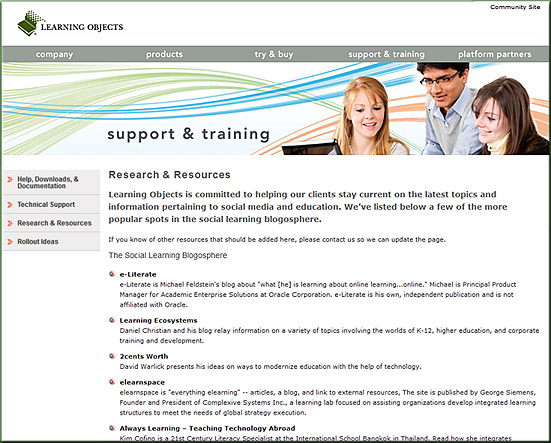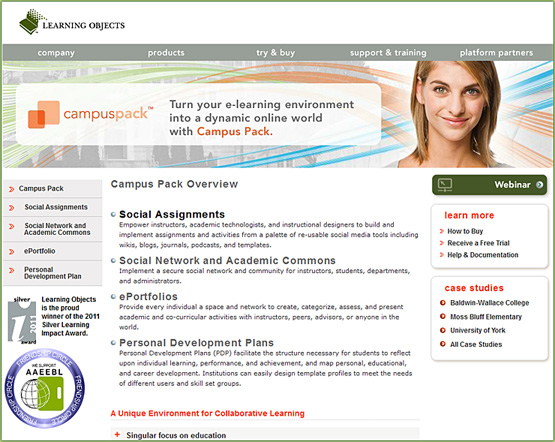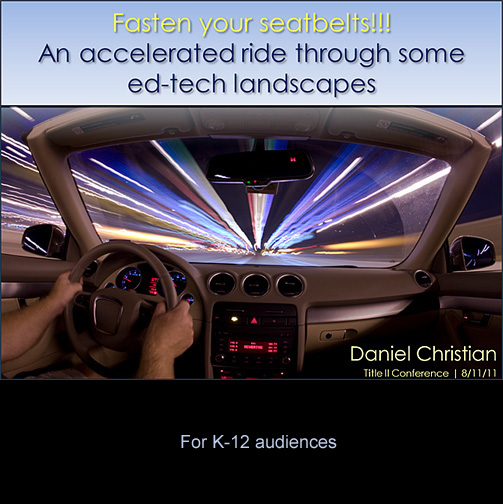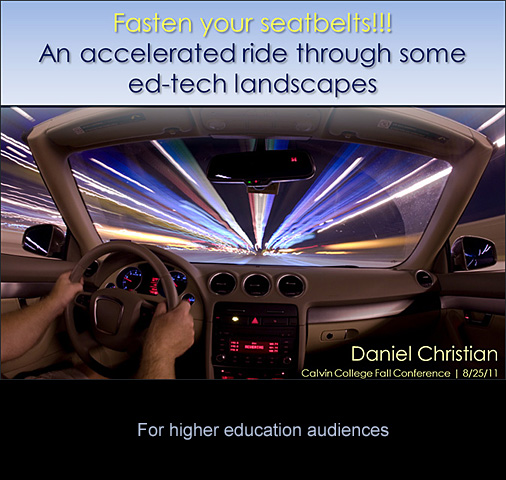The World Is Open – Now, WE ALL LEARN with Web Technology — from ELI
In this session, Curtis J. Bonk, Professor for Instructional Systems Technology at Indiana University System, offers an intriguing look at 10 technology trends that he calls educational openers. When combined, the first letter of each opener spells the acronym WE ALL LEARN. This model helps make sense of the role of various technologies in open education and participatory environments, including e-books, podcasts, streamed videos, open courseware, online learning portals, social networking tools like Facebook and Ning, YouTube videos, wikis, and virtual worlds (emphasis DSC). Clearly, technology-based learning continues to open new learning pathways for all the connected learners of this planet. At the same time, thousands of organizations and individuals are sharing their course materials, expertise, and instructional ideas globally, thereby expanding learning opportunities and resources even further. As this occurs, members of the media, politicians, educators, students, parents, and others are asking important questions about the quality of such contents.












